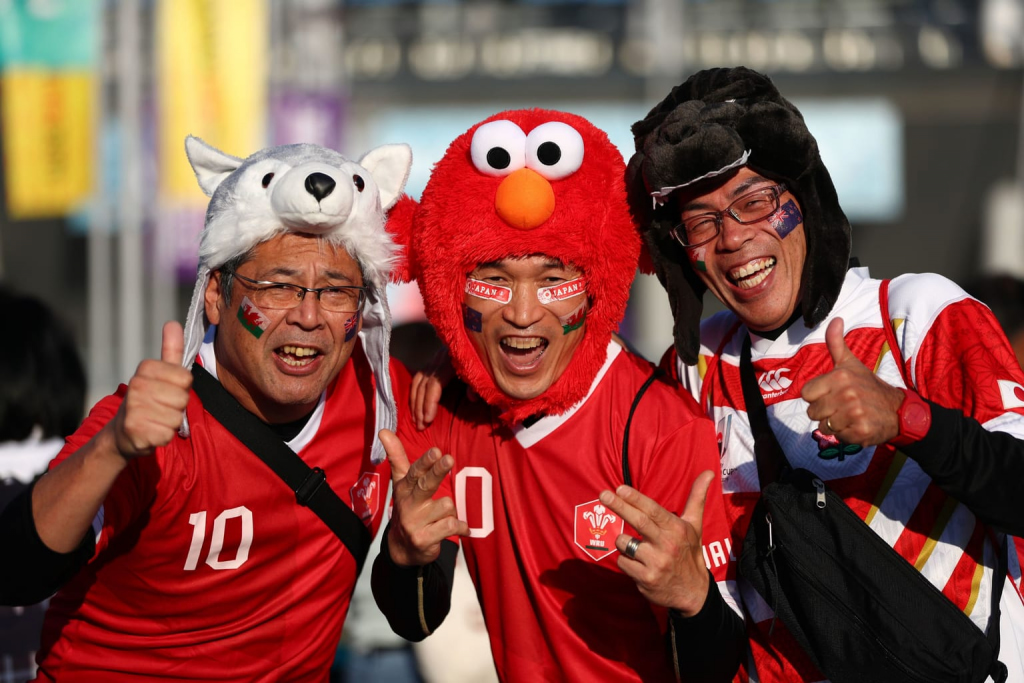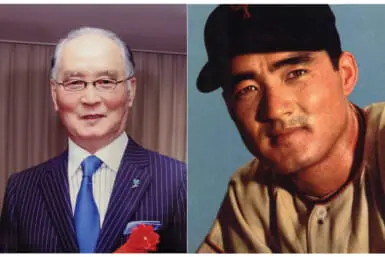And that’s a wrap folks.
Being a sports fan has to be one of humanity’s most irrational yet gratifying endeavors. I have run the full gamut of emotions over this past six weeks: outrage to delight, elation to despair, riddled with nerves to bursting with excitement. But with the gift of hindsight, I can faithfully say it’s all been worth it. What a tournament this Rugby World Cup has been.
From Japan’s opening victory on September 20 to South Africa’s rampant World Cup final display against England on November 2, it’s been a privilege to be in Japan. Over the course of the autumn, we’ve witnessed international rugby of the highest order, a host nation shock the world as it stormed into a first ever World Cup quarter-final and record numbers of traveling fans becoming endeared to their Japanese hosts.
Let’s take a look at some of the top moments from an unforgettable Rugby World Cup 2019.
Ichiban Japan
Where else to start other than the outstanding host-nation? Japan came into the tournament as rank outsiders, with slight hopes of setting up a showdown against Scotland in the last game of pool A. After decimating Ireland in Shizuoka, Japan went on to top the pool in emphatic fashion. It flipped the script of the Rugby World Cup 2019, and got a nation of rugby neophytes wholeheartedly and unfailingly behind its national team.
Warren Gatland Rubs Baby Oil on His Balls
You read that one right. On the eve of Wales’ World Cup opener against Georgia, coach Warren Gatland had the inspired idea of rubbing baby oil on the team’s rugby balls during training to help them deal with forecasted high levels of humidity. Naturally, this led to deserved wise cracks from fellow coaches including Gatland’s compatriot and the man in charge of the All Blacks, Steve Hansen.
Typhoon Hagibis Cancels World Cup Games
The highly publicized – and criticized – disruption caused by Typhoon Hagibis was an unwanted “first” for World Rugby. Three games – New Zealand vs Italy, France vs England, Canada vs Namibia – were canceled with no apparent contingencies in place. Thankfully, it didn’t affect the outcome of the tournament at large, but they are mistakes that must never be repeated.
A True International Extravaganza
During my travels around the nation I encountered fans of all stripes. Yet even more impressive was the deluge of foreign supporters who’d made the journey from nations where rugby scarcely exists: I spoke with Brazilian journalists, a Greek photographer, a touring team from China and a few burly German ex-rugby players, all here for rugby’s greatest showcase. Such diversity can only bode well for the sport going forward.
Two Major Upsets
In the space of four World Cup days, Uruguay shocked Fiji in the Kamaishi sunshine, before Japan turned over Ireland in a game that will go down in tournament folklore. After a fantastic opening weekend – which included New Zealand and South Africa’s all-out war of attrition – these two upsets (particularly the latter) propelled the World Cup into the sporting stratosphere.
Seeing Red
Rugby World Cup referees’ liberal use of the red card this year was an unwelcome surprise. After coming under scrutiny following several acts of dangerous play that went unpunished during the opening week, red cards were flying wantonly out of the officials’ pockets. Eight players were given their permanent marching orders during the tournament – with Sebastien Vahaamahina‘s red card proving the catalyst for France’s quarter-final exit against Wales. Twenty-eight yellow cards were also shown, while Samoa were the worst of the serial offenders seeing one red and five yellows in just four games.
A Canadian Clean-Up in Kamaishi
Canada vs Namibia, which suffered at the hands of Typhoon Hagibis, led to one of the World Cup’s most heart-warming tales. After Kamaishi, host-city for the game, was washed out by floods following the typhoon, the game was canceled on “grounds of safety.” The Canadian dressing room hierarchy decided they would spend this extra downtime helping with the clean-up efforts in nearby affected areas. The gesture of goodwill took social media by storm, and has cemented Canada’s place in the hearts of Kamaishi locals.
Individual Size Doesn’t Matter
In a game that is becoming increasingly about brute force and bigger equals better, it was great to see some of the competition’s smallest players lighting it up. Aaron Smith and Faf de Klerk, New Zealand and South Africa’s respective scrum halves, were among the best individuals in the tournament despite their comparatively tiny frames. Other vertically challenged players to seriously impress were Antoine Dupont (France), George Ford (England) and lightning-quick Cheslin Kolbe (South Africa) who was shortlisted for World Rugby Men’s 15s Player of the Year 2019 award.
England Decimate New Zealand
Was England’s semi-final display the best performance in Rugby World Cup history? For me, it’s certainly up there. To dethrone the two-time reigning champions in such a ruthless and coordinated effort was simply spellbinding – and this is coming from an Irish fan. The English players achieved a level of intensity and physicality that was off the charts. Unfortunately, they just couldn’t find that extra emotional gear again a week later, in the game where it mattered most.
2019 Springboks Achieve Immortality
When Siya Kolisi, South Africa’s first ever black captain, gave his victory speech minutes after the final whistle blew in the World Cup final, he dedicated the victory to the “people back home,” while acknowledging the “problems” in his native land. The effect of this sentiment was palpable in the atmosphere at Yokohama International Stadium. There were minor echoes of South Africa lifting the trophy alongside Nelson Mandela at the end of the 1995 Rugby World Cup a year after Apartheid ended; it felt like a victory that transcended sport.
This time last year I didn’t give South Africa a chance. Yet, in 2019 under the tutelage of eccentric head coach, Rassie Erasmus (who by the way has the greatest name in sport), they have risen to the top of the world. Criticised for having no plan B, and nothing more than a big, physical “power game” to rely on, South Africa came out in the grand finale and played its opponent off the park. England didn’t show up, because South Africa didn’t allow it to. From its opening loss to New Zealand, South Africa slowly but surely grew into the tournament, and is a worthy custodian of its new status: World Number 1.
Feature photo by Francois Nel – World Rugby via Getty Images









